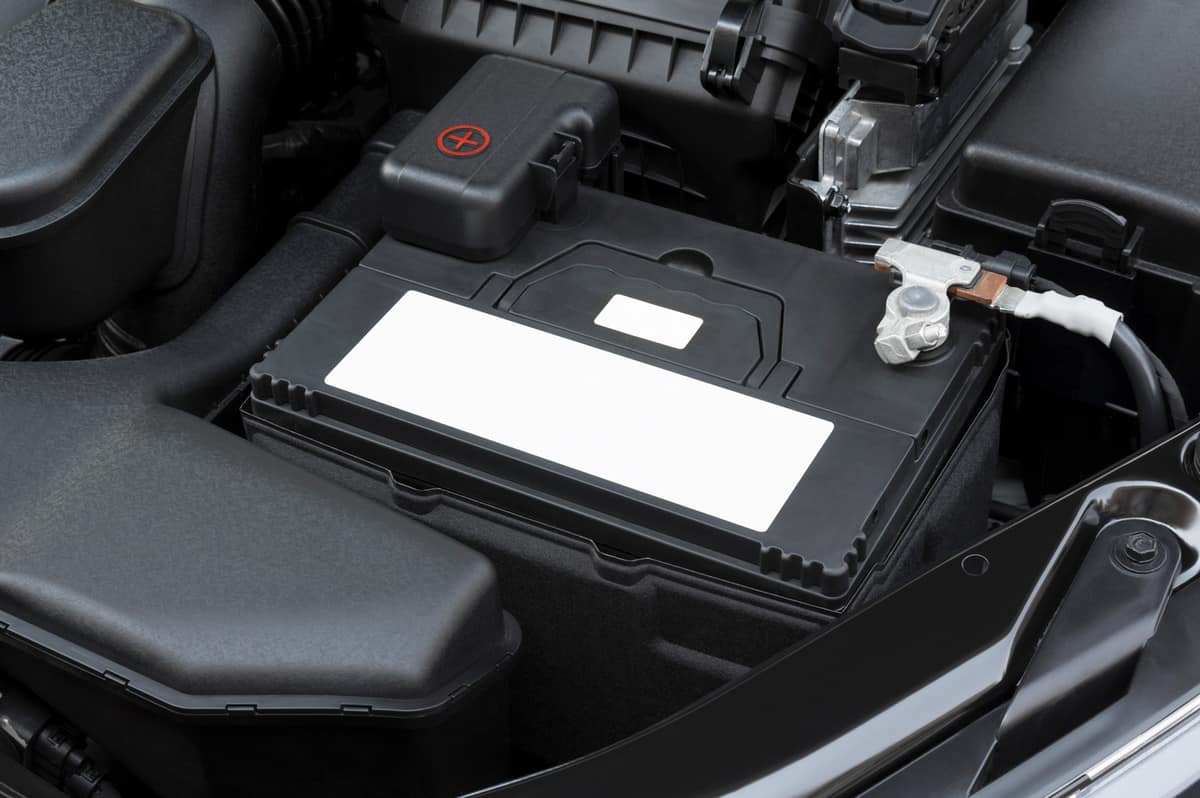Whether your new car battery came by delivery or off the shelf, knowing its health and charge is always prudent. So, do car batteries typically come charged? We've done the research for you, and here is what we found.
There are a few exceptions, but almost all new car batteries typically come charged to about 90% or more of their capacity.
We have compiled more interesting facts and tips about car batteries, and we're sure that they'll be helpful as an introduction or as a refresher for motorists. Do read on and enjoy!
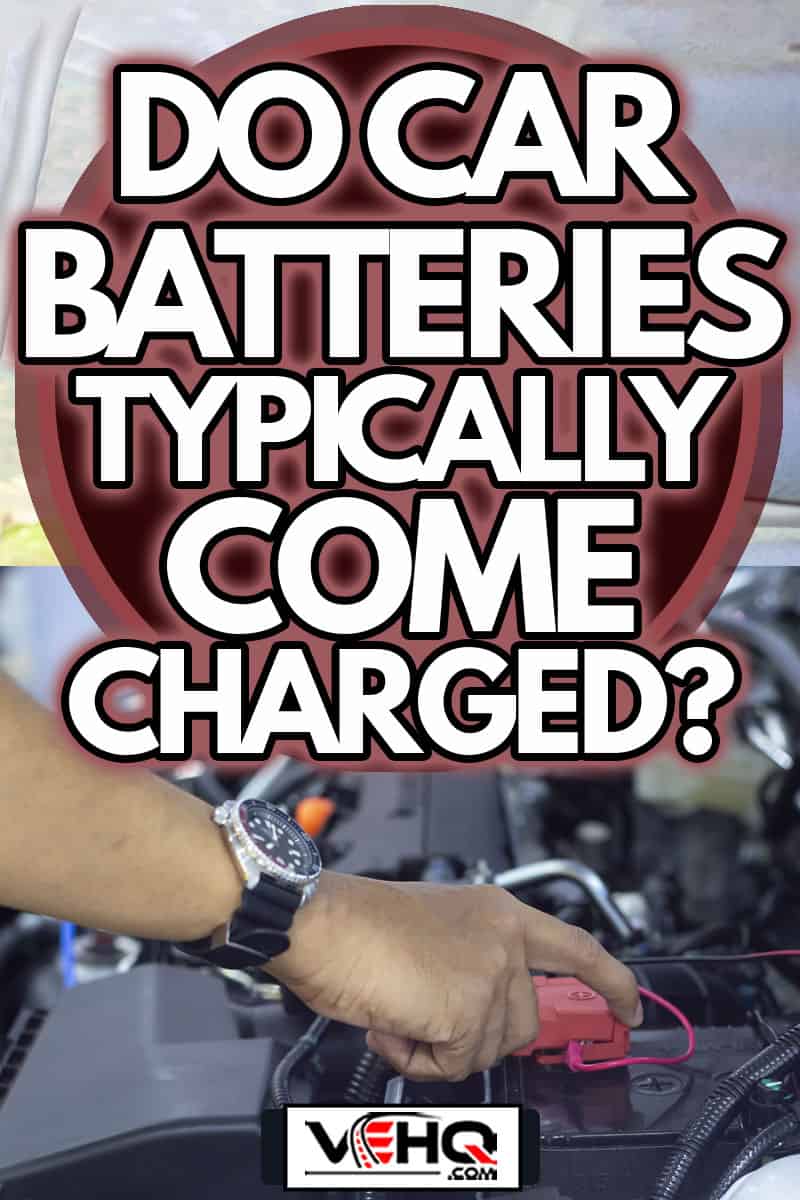
Do All Automotive Batteries Come Fully Charged?
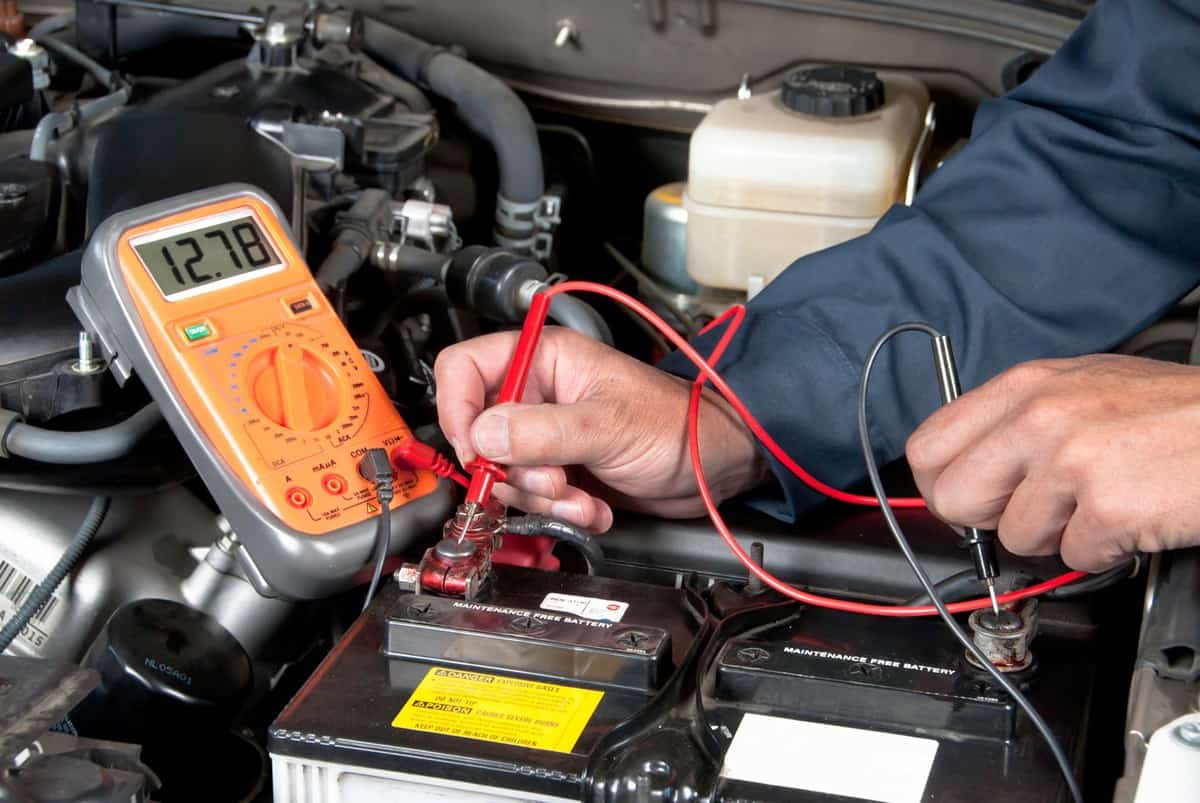
As mentioned previously, most car batteries are sold by dealers and distributors fully charged. A buyer can typically buy a car battery off the shelves and use it to start a car immediately. However, there are a few exceptions. Put simply, not all car batteries come fully charged.
Some batteries come from the factory uncharged, and these batteries need to be activated by the buyers themselves. Another exception involves unusually-sized batteries that require special processes before getting installed into vehicles.
Why Are Batteries Charged From The Factory?
Most automotive batteries come charged from the factory to prevent degradation and quality control. The tests involved in this process include the following:
- Characteristics and State - State of Health (SOH), State of Charge (SOC)
- Service Life
- State Detection
These terminologies may sound a little daunting, so what do these tests mean for our car batteries? Put simply, these processes:
- Measure the car battery's charge capacity in milliampere-hours (mAh)
- Check the battery's voltage in volts
- Test the safe depth of discharge in terms of charge percentage
- Ensure that the battery will achieve its rated lifespan during regular use as well as in storage
How Can I Test My Car Battery?
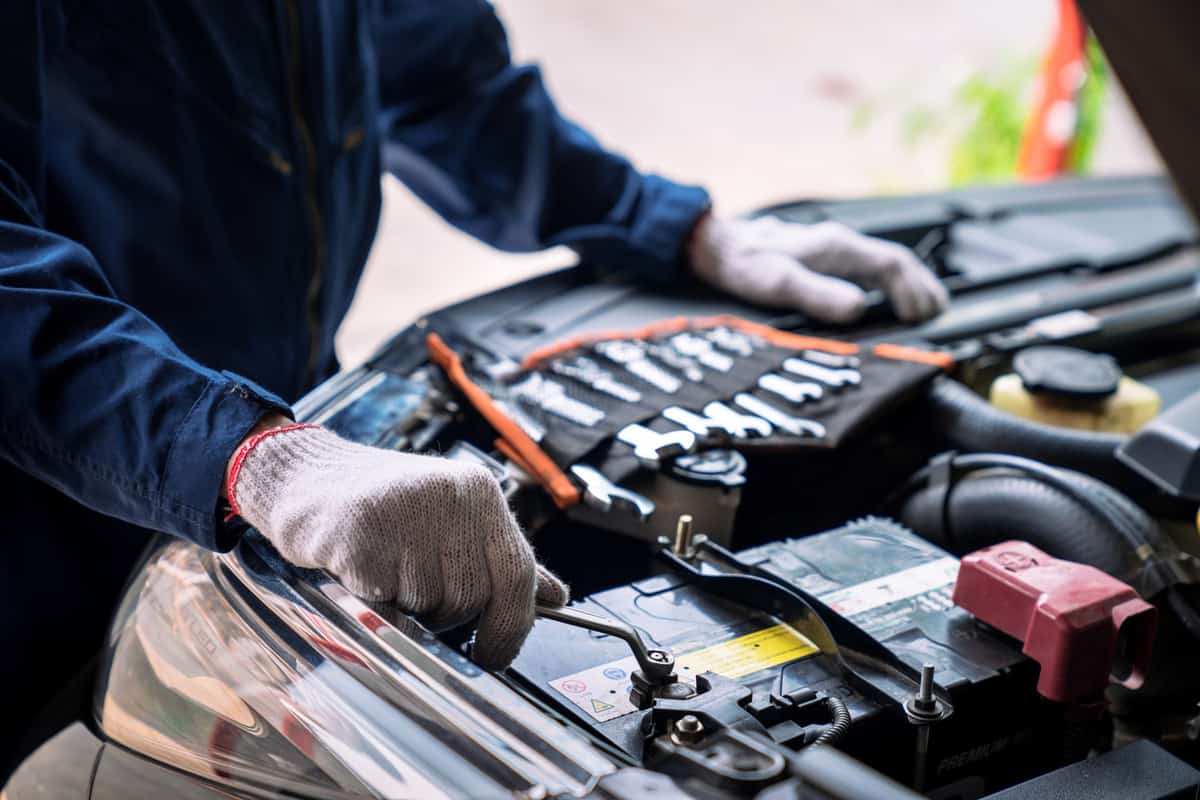
To test your car battery's remaining charge and its ability to start an engine, you will need to use a multimeter or a car battery tester.
Multimeter
A multimeter is an electronic measuring instrument that measures volts, amps, and resistance from an electrical source. In this case, the car battery is our electrical source.
Check out this best-selling multimeter on Amazon.
To test your battery with a multimeter, follow these easy steps:
- Turn the multimeter's DC voltage setting to 20 volts.
- Attach the multimeter's red probe to the battery's positive terminal.
- Attach the multimeter's black probe to the battery's negative terminal.
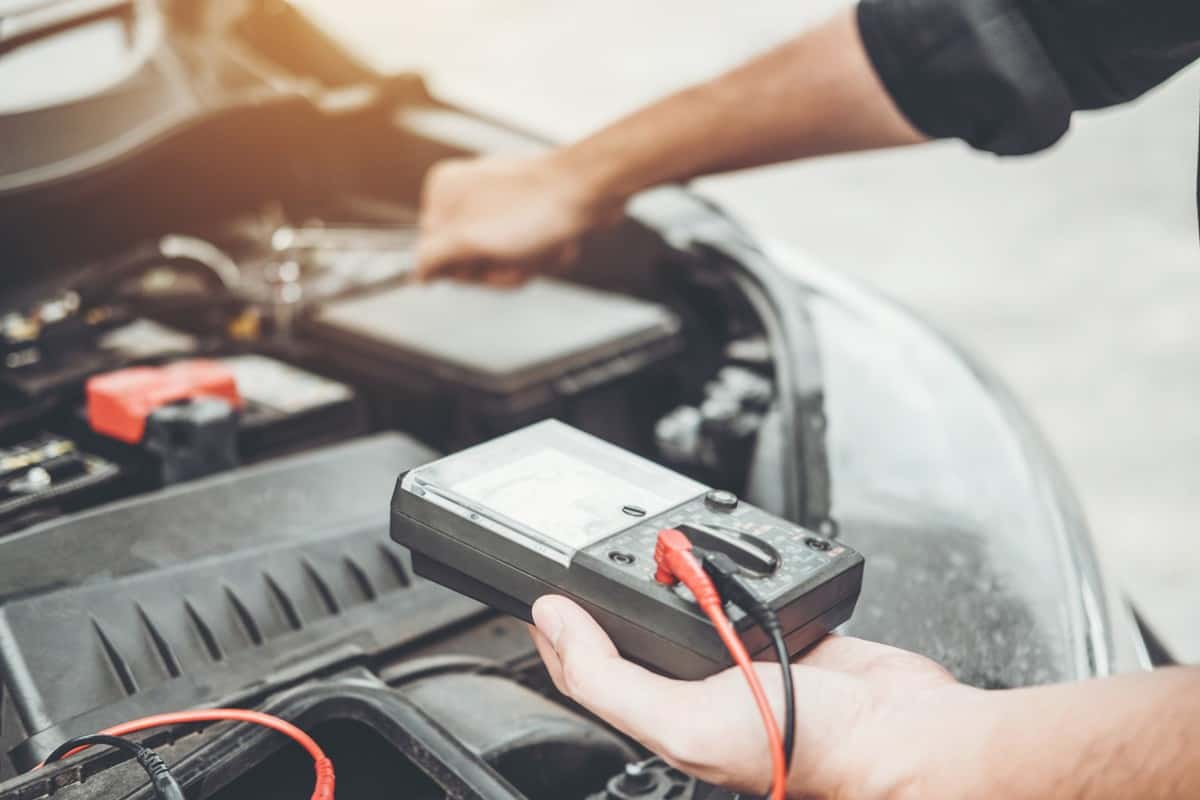
Test The Battery's Voltage
A fully-charged car battery's "resting voltage" is 12.6 volts or slightly higher, up to 12.9 volts. The resting voltage is your battery's charge level when your car is off. Below is a helpful guide for your battery's resting voltage.
- 12.6V volts or above - The battery has a full charge.
- 12.5 volts - The battery has a healthy charge, which is more than sufficient to start your engine easily.
- 12.1 - 12.4 volts- The battery is partially discharged, and it should be recharged using the car's alternator or a battery charger. The battery's lifespan will decrease if it maintains this voltage for long periods.
- 12.0 volts or below - At 12.0 or below, the car battery is considered discharged, and it should be recharged immediately. The battery's lifespan will significantly shorten if it maintains this voltage for extended periods.
Test The Battery's CCA
Next, you will need to test your battery's cold-cranking amps (CCA). A CCA rating is the number of Amps a 12-volt battery can deliver at 0° Fahrenheit for 30 seconds while maintaining a voltage of at least 7.2 volts.
In simple car terms, CCA refers to the battery's ability to start a car's engine in cold weather. Compact SUVs and light trucks often require 400 to 600 CCA, while medium to heavy-duty trucks may require 800 to 1,000 CCA.
A multimeter cannot measure the battery's CCA directly, but it can help you estimate it. You can gauge if your battery can keep starting your car in the next few weeks, months, or years.
To estimate your battery's CCA, you will need to see your multimeter while starting up your engine. If your multimeter's lead wires are long enough, you can do this by yourself. If not, you will need someone to start the car while you are watching the multimeter.
While the engine is cranking up, the multimeter's voltage reading will drop temporarily. For a fully-charged battery, the voltage reading should not drop below 10 volts while the engine is cranking. If it does, then the battery needs either recharging or replacement.
Test The Battery's Voltage With Engine Running
Finally, you will need to test the battery's voltage when the engine is running.
After the initial cranking, a healthy car battery's voltage reading should be between 13.7 to 14.7 volts while the engine is running. This rise in the voltage reading is normal as the car's alternator works to charge the battery.
Car Battery Tester
Car battery testers, sometimes called car battery analyzers, are more specialized than your standard multimeter. Battery testers do much more than give out the voltage reading. It also analyzes your battery's health, charge percentage, and CCA.
Check out this highly-rated car battery tester on Amazon
Here are the steps to use a car battery tester.
- Place or clamp the battery tester's red probe to the battery's positive terminal.
- Place or clamp the battery tester's black probe to the battery's negative terminal.
- Select your battery type using the appropriate buttons.
- Regular Flooded
- Absorbent Glass Mat (AGM) Flat Plate
- AGM Spiral
- Gel Type Battery
- Enhanced Flooded Battery (EFB)
- Select the CCA rating of your battery (it is usually on the battery label)
- Start the battery test and wait a few seconds for the results
Different brands and models may have varying buttons or menus, but the battery test should return the same information across most units. The results would typically show the following:
- Voltage reading
- State of charge, in percentage
- State of health, in percentage
- Actual vs. rated CCA
- Overall Analysis - e.g., Good Battery, Replace Battery, etc.
Many car battery testers can also perform cranking and charging tests.
A cranking test will typically show the cranking voltage and the time needed to start the engine. On the other hand, a charging test will show the battery's voltage while the engine is running and the alternator is working.
The cranking and the charging tests may also return an overall analysis, like "Normal," "Low," etc.
Check out this helpful video on using a modern car battery tester.
How Do You Know If Your Alternator Has A Problem?
Start the engine and turn on all the car's standard electrical equipment - headlamps, airconditioning, radio/multimedia system, etc.
Using a car battery tester, the "Charging Test" will give you a straightforward analysis, i.e. good, normal, low, etc.
Using a multimeter, you will need to observe the voltage reading. If the reading drops below 13.5 volts, then your alternator may be having a hard time keeping the battery charged. It would be good to have a professional check your alternator.

How Long Does A Car Battery Hold Its Charge?
Even if they're just sitting on a dealer's shelves, brand new batteries usually lose around 5% of their charge every month. It is always best to check the manufacturing date on the battery's label so you can choose the newest one available.
If you bring a brand-new, fully charged battery home and store it for emergency purposes, the charge can last for up to 6 months.
A fully-charged car battery installed in one of today's modern cars will typically last for a week or two before dying out. Many of today's cars come packed with alarms, infotainment systems, and other features that drain a sitting car's battery faster than ever before.
How Long Do Car Batteries Last?
While many people believe that car batteries typically last around four years, some claim that their batteries last for six years. Opinions differ because a car battery's lifespan depends on several factors that vary from motorist to motorist.
Even assuming that there are no differences in the brand, type, size, initial charge, and manufacturing date of two car batteries, their lifespans can differ due to the following reasons.
- Climate - Extreme temperatures can reduce battery lifespan.
- Vibration - High vibration levels can dislodge and damage plates, and liquid solutions can spill. These will decrease the battery's life.
- Charging and discharging depth and frequency - If a car battery gets drained frequently, its life span can shorten significantly.
- Accessories - Wipers, headlamps, air-conditioning, infotainment systems, backup cameras, and assisted driving features all drain the battery. Their rate of usage can affect battery life.
Check out this popular, vibration-resistant AGM battery on Amazon.
Wrapping Up
